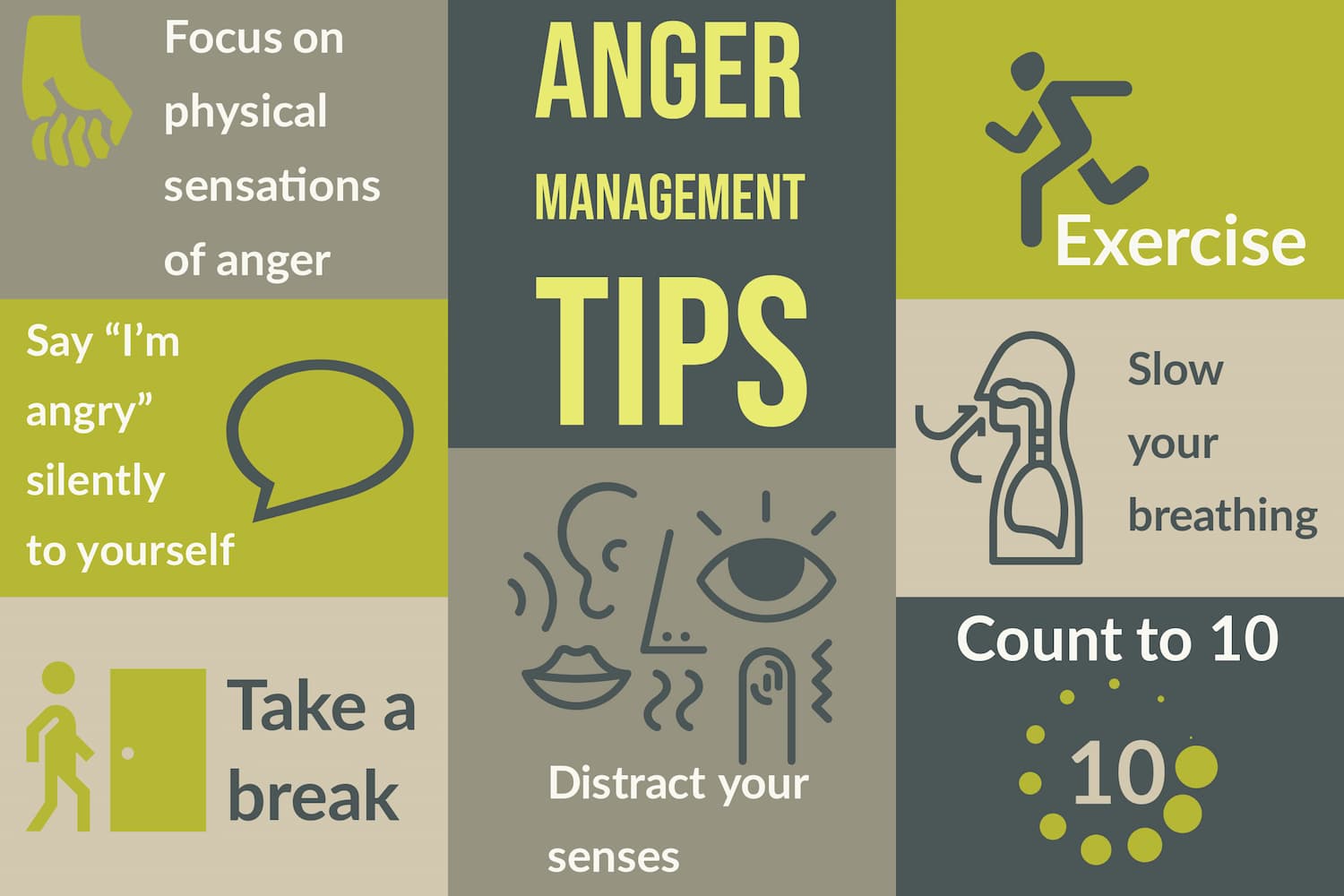
Anger is a natural human emotion that's intended to protect yourself or someone else from feeling short-changed or under attack. It is a secondary emotion that follows something more important such as disappointment, frustration, fear, distress or pain.
In most instances, anger stems from frustration of not being able to have what we want in time and space - those moments where we feel cheated or tricked by an event or person. In these situations, the feelings of anger can be channelled constructively as it allows us to focus on the cause of our anger (negative energy) and hence gives us enough power to change it (positive energy).
What is anger?
Anger is an emotion characterised by antagonism towards someone or something you feel has deliberately done you wrong, mistreated you, or not given you what you deserve. It can sometimes manifest as aggression toward others, but it may also include feelings of resentment, outrage, and even depression or vengefulness that can lead to physical violence against one's target.
Everybody feels this healthy emotion from time to time because it's a natural response to emotional or physical pain. Anger is a normal, albeit unpleasant, emotion that may produce a positive outcome when expressed constructively.
People of all ages get angry, including babies. They cry out their frustrations, whereas adults often have emotional outbursts. There is no right or wrong way to vent anger, but there is a healthy method to do so.
What causes anger?
Anger may stem from lots of different things. However, what makes one person upset may not make another feel the same way. The way a person manages their anger issues is influenced by their emotional or mental health.
Some people have intermittent explosive disorder (IED), a mental health issue marked by unwarranted outbursts of anger. Often, the object of the angry person's rage is a very trivial matter. Shortness of breath, chest pain, tremors, muscle tension, and verbal or physical aggressiveness are all symptoms of their excessive rage.
The expression of anger varies from person to person. Some were brought up to never display anger since it was considered "bad" or unacceptable in their household. Others were given anger as a signal by parents, teachers and peers to act out when they felt cheated on or unsupported. Such anger is often misdirected at another person who is seen as weaker than them—they can't express anger towards someone of equal strength. It's basically anger taken out somewhere else to protect themselves.
Is anger expression beneficial?
Through anger release, people can feel better about themselves and others around them. Expressing anger benefits their mental and physical health because once anger has been released, it no longer builds up inside of a person, which can be problematic over time. One of the main benefits of anger release is the ability to stop dwelling on negative feelings in order to maintain mental stability in day-to-day life.
It's crucial to note, however, that people who become furious for the sake of becoming angry without a specific objective may be exhibiting symptoms of a mental health condition such as bipolar disorder, depression or intermittent explosive disorder.
While anger can be a healthy and helpful emotion, anger that lingers can become problematic for the person experiencing it. Anger is only normal in certain situations; if it is present more than it should be, then anger management may be necessary. When this type of anger becomes persistent over time, the result can have long-term effects on both mental health and physical health.
7 ways to manage anger
Anger management has got nothing to do with getting rid of anger, but rather focusing on why you are angry and releasing it constructively. Some people may have a more difficult time than others in dealing with anger and may therefore need anger management therapy or anger management techniques to help them cope. It is important that we learn how to properly express anger, as well as avoid angering ourselves, so we can achieve a better quality of life. Below are seven ways to relieve angry feelings:
1. Deep breathing
When you feel your fury rising, take a deep breath to regain your composure and mental clarity. One of the relaxation techniques that has helped those who are prone to emotional outbursts is slow breathing through the nose and filling the diaphragm with air, then counting 1 to 10 before exhaling gradually.
2. Write it down
By writing down what makes you furious and putting your negative emotions on paper, you can express yourself without hurting anyone else. Once you've expressed your anger clearly, you'll feel much better about expressing it in a creative and non-harmful way. Make sure to include any thoughts that come to mind while you are writing.
3. Exercise
Want to let off steam by punching or kicking something? Another technique to release anger and have fun at the same time is to go for a walk or to go to the gym. Get up and move around instead of sitting around dwelling on your anger. Exercise helps release cortisol, one of the hormones linked to stress relief.
4. Do yoga
Yoga encourages you to incorporate breathing into your daily routine, which can help reduce anger. If uncontrolled anger is depleting your energy and causing mental strain, yoga is a great way to release anger while having fun.
Source: University of the Witwatersrand, Johannesburg
5. Take a hot bath or shower
It may sound trivial, yet some people become enraged because they are uncomfortable in their own skin. Many find that soaking in a tub of warm water mixed with essential oils is relaxing and allows them to let off steam when they're furious. While you soak, take deep breaths to let your mind and body relax even more.
6. Meditate
Meditation has been proven to be an extremely helpful strategy for releasing and managing anger. It helps you stop overthinking so that you can concentrate on calming your thoughts and breathing, which releases anger from your body naturally.
7. Talk to someone
It's important to let your anger out in a healthy way so it doesn't build up inside of you. Talking to a family member or your best friend is one of the best ways to let go of anger and feel better. Consulting a mental health professional or joining anger management support groups online, which provide counselling for individuals who do not have access to anger management professionals, can also help you manage your anger issues without the use of medications.
When it comes to releasing anger, a walk in the park can sometimes make all the difference. Nature has a therapeutic effect on humans, so getting outside and breathing fresh air could provide you with that much-needed dose of happiness.
Originally published on Aug 01, 2018









